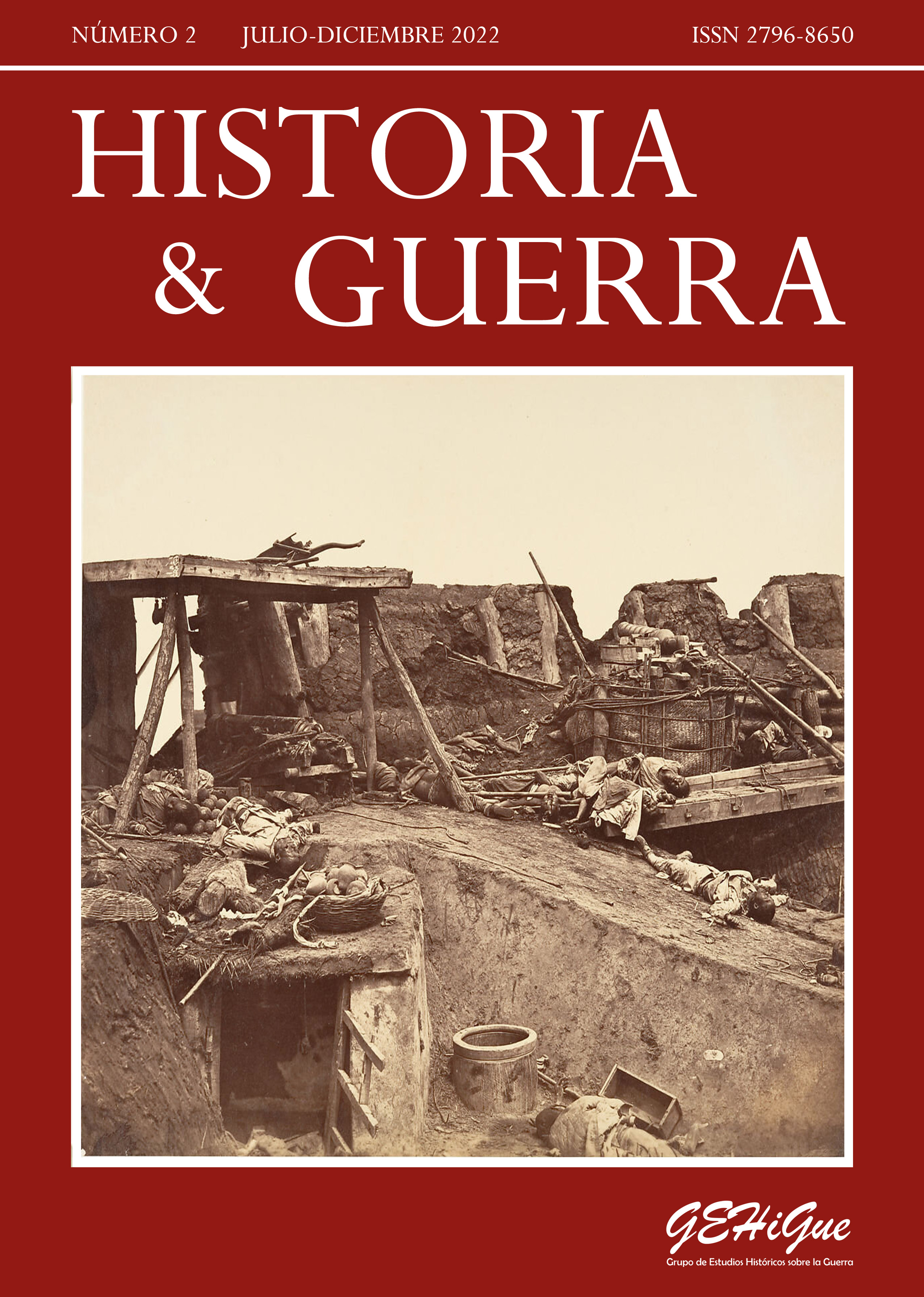The Lost Generation and the first postwar in America. A conflicting worldview?
Abstract
After World War I, bourgeois moral started to be questioned in differents aspects around the Western world. In the United States we can observe a series of conflicts in the cultural sphere, which involved the questioning of thoughts, opinions and practices that were established and supported by diferents powerful areas. This disagreement was expressed in American literature, specially through the writers of the Lost Generation. We propose to analyze in which ways that questioning has been expressed, including its advances and limitations, taking in account three novelists who belonged to that group.Downloads
References
Arostegui, J. (1995). La investigación histórica: teoría y método. Crítica.
Bosch, A. (2005). Convertirse en americanos. Las minorías étnicas y las dos guerras mundiales en Estados Unidos. Ayer, 58(2).
Campos, S. (2007). Experiencia de Nick Adams, Jake Barnes y Ernest Hemingway en la relación Estados Unidos - Europa. En Rolando Costa Picazo y Armando Capalbo, (eds.), Estados Unidos y su cultura: una mirada retrospectiva. BM Press.
Cloonan, W. (2018). The expatriate idyll: The Sun Also Rises. En Frères Ennemis: The French in American Literature, Americans in French Literature. Liverpool University Press.
Faulkner, W. [1926] (1951). Soldiers’ pay. Signet.
Fussell, P. (1975). The Great War and modern memory. Oxford University Press.
González Sánchez, L. (2018). Literatura de denuncia social: realidades fronterizas en El festín de los Cuervos, de Gabriel Trujillo Muñoz [Tesis de grado]. Universidad Santo Tomás.
Hemingway, E. [1926] (1955). The Sun also rises. Bantam Books.
Hernández Rubio, J. (2016). La transición histórica de los EE.UU. de los años veinte a los treinta a través del cine. Un periodo de cambios socioeconómicos y de perspectivas en la Tierra de las oportunidades y en la industria hollywodense. Cuadernos de Bellas Artes, 51.
Howe, D. (1975). American Victorianism as a Culture. American Quarterly, 2(5).
Lynch, J. (1998), Postwar Play: Gender Performatives in Faulkner's “Soldiers’ Pay”. Faulkner Journal, 14(1).
MacMillan, D. (1987). Fictional Facts and Factual Fiction: William Faulkner and World War I. Faulkner Journal, 2(2).
Saunders, J. (2018). Philosophy and Fitness: Hemingway’s “A Clean, Well-Lighted Place” and The Sun Also Rises. En American Classics: Evolutionary Perspectives. Academic Studies Press.
Scott Fitzgerald, F. [1922] (1950). The beautiful and damned. The Scribner’s Library.
Stern, M. (2003). Literary Criticism, the Twenties, and the New Historicism. The F. Scott Fitzgerald Review, 2.
Stevens, J. (1988). What made grandpa blush? Media censorship in the Twenties. Studies in Popular Culture, 11(2).
Williams, R. (2000). Palabras claves. Un vocabulario de la cultura y la sociedad. Nueva Visión.
Yellis, K. (1969). Prosperity’s Child: Some Thoughts on the Flapper. American Quarterly, 21(1).
Ynoub, R. (2011). El proyecto y la metodología de la investigación. Cengage Learning.
Copyright (c) 2022 Griselda Labbate

This work is licensed under a Creative Commons Attribution-NonCommercial 4.0 International License.

Historia & Guerra uses an international license Attribution-NonCommercial 4.0 International (CC BY-NC 4.0).
You are free to:
- Share — copy and redistribute the material in any medium or format.
- Adapt — remix, transform, and build upon the material.
- The licensor cannot revoke these freedoms as long as you follow the license terms..
Under the following terms:
Attribution — You must give appropriate credit, provide a link to the license, and indicate if changes were made. You may do so in any reasonable manner, but not in any way that suggests the licensor endorses you or your use.
NonCommercial — You may not use the material for commercial purposes.
No additional restrictions — You may not apply legal terms or technological measures that legally restrict others from doing anything the license permits.
Notices:
You do not have to comply with the license for elements of the material in the public domain or where your use is permitted by an applicable exception or limitation.
No warranties are given. The license may not give you all of the permissions necessary for your intended use. For example, other rights such as publicity, privacy, or moral rights may limit how you use the material.
The author retains all rights to his work without restriction and grants Historia & Guerra the right to be the first publication of the work. Likewise, the author may establish additional agreements for the non-exclusive distribution of the version of the work published in the Journal (for example, placing it in an institutional repository or publishing it in a book), with the acknowledgment of having been first published in this journal. Use of the work for commercial purposes is not permitted.














.jpg)















